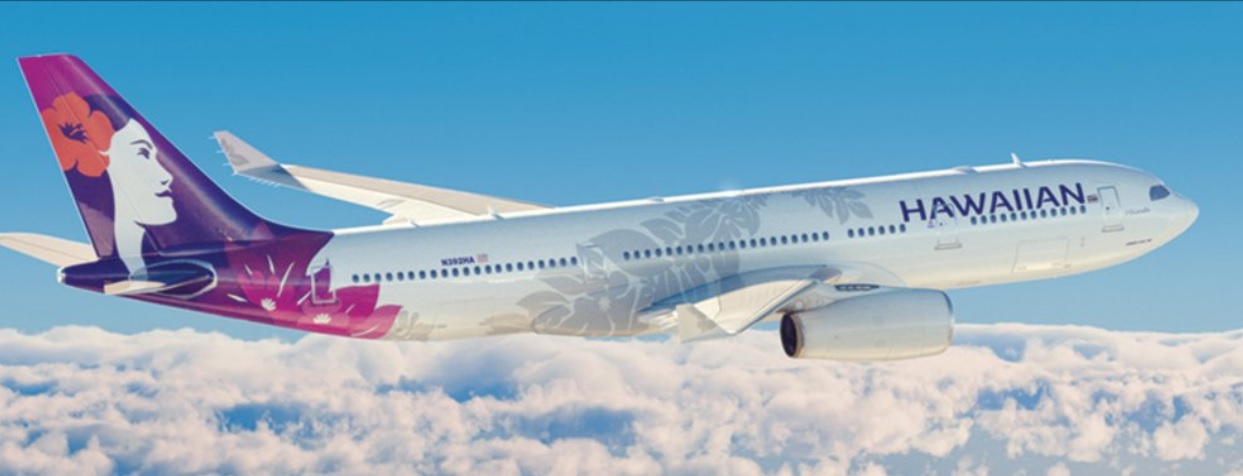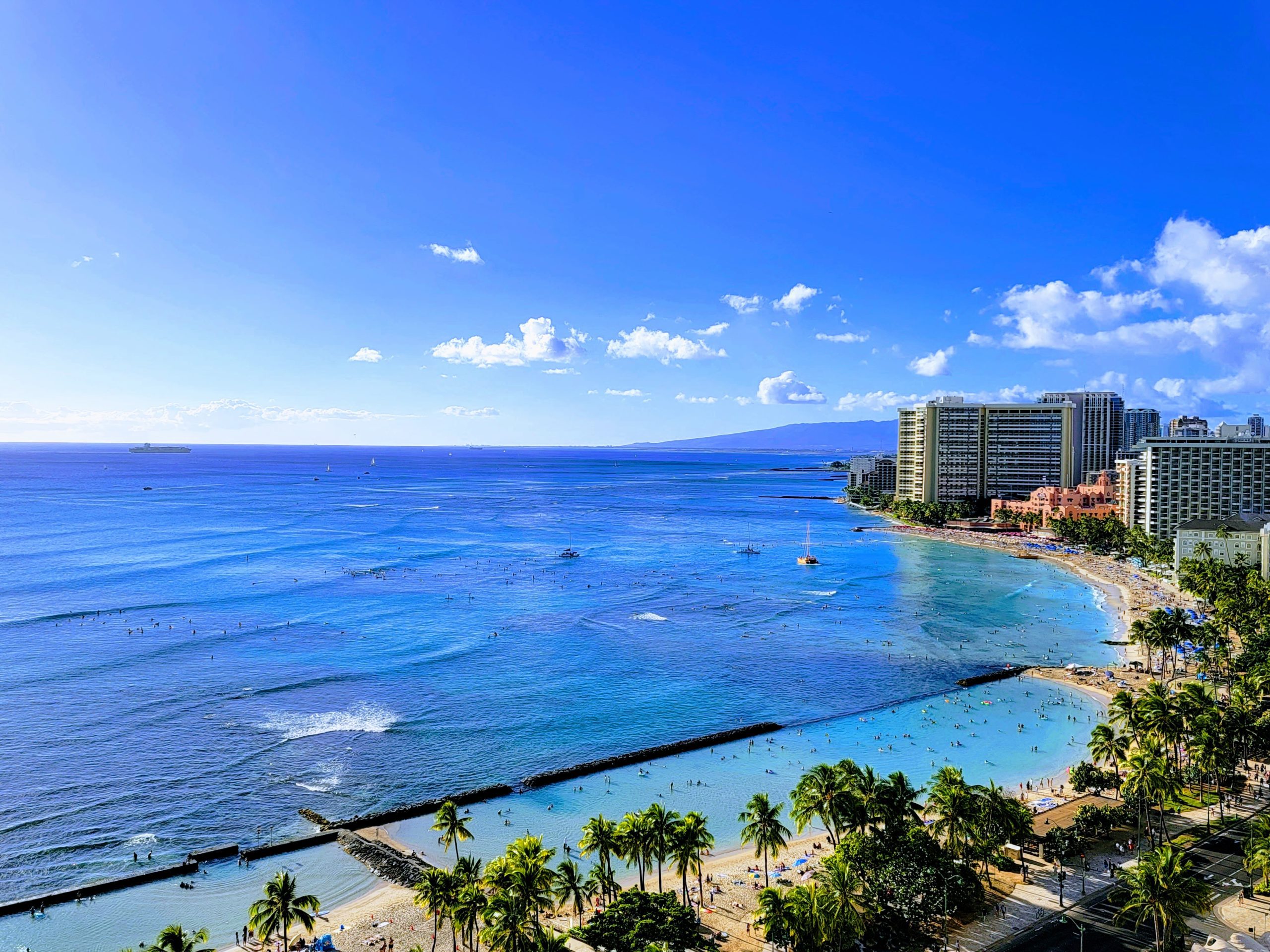On Wednesday, Alaska Airlines and the Department of Justice agreed to extend the review period of Alaska’s acquisition of Hawaiian Airlines until Friday. This one day extension suggested that the parties were close to a deal to avoid the federal government filing an anti-trust suit to stop the acquisition.
- The deal doesn’t create monopoly or consolidation on inter-island flights within Hawaii, though many observers expect Alaska to reduce seat capacity on these frequently money-losing routes (though Hawaiian outperforms Southwest flying between the islands).
- It creates some consolidation between the mainland and Hawaii, but these are highly competitive routes. United, American and Delta all are big players here as well.
- There’s simply been no clamoring of opposition to the deal. Hawaiian politicians have been supportive. Unions haven’t been outraged.

All this suggests that a deal should be possible, notwithstanding that the Biden administration has opposed most forms of consolidation and cooperation (successfully in the airline industry, less so outside of it).
They need a little more time to get something done – and the parties still seem to think it’s possible – as suggested by another extension this time through the end of Monday.
On August 14 $ALK Alaska and Hawaiian $HA agreed with the #DOJ to further extend the Review Period until 12:01 a. m. Eastern Time on August 20, 2024. Alaska and Hawaiian continue to cooperate with the DOJ in this review process. #merger
— Diane Alter (@diane_alter) August 15, 2024
It’s unclear what a deal could look like that allows Alaska Airlines to move forward with its acquisition of Hawaiian without DOJ opposition.
- Route guarantees. Alaska could agree to maintain existing flying between the islands for a certain period of time, or not to drop capacity for a period of time where Hawaiian and Alaska currently compete.
- Gate space in Honolulu. They could be forced to give up some of their prime real estate to foster competition.
- Gates and slots at other congested airports. There’s no reason that remediation has to come in the form of routes or assets directly implicated by the merger. When US Airways wanted approval of its deal to acquire American one of the things it gave up was gate space at Dallas Love Field (ironically to Virgin America, since acquired by Alaska, though partially now utilized by Delta rather than a small low cost airline).
Alaska’s assets in this regard are limited – beyond-perimeter slots at Washington’s National airport, some slots at New York JFK, but they could be asked to give up prime real estate in Seattle or San Francisco (for instance).
- The West Coast Alliance Alaska partners with American Airlines, DOJ could be asking Alaska to choose – Hawaiian or American. Dropping American Airlines codesharing wouldn’t be especially impactful to passengers. While status members would miss reciprocal upgrades, as long as Alaska remains in oneworld most of the benefits for customers would remain. And American hasn’t really taken advantage of the partnership – they haven’t built up the Pacific hub in Seattle they had planned.

The Department of Justice has prepared to file suit in federal court in Hawaii. That’s consistent with a narrative that they’d be protecting the local market airline and should bring them a favorable judge (forum shopping). However this may just be doing their job, in case negotiations fall through. The next three business days will be a very interesting time for a potential merger.
Meanwhile, Hawaiian shareholders are on edge – the deal gets them a huge premium, and share price will likely drop markedly if DOJ files suit. The airline is on shakier ground than the largest carriers. Alaska is overpaying for relatively limited assets, but gains widebodies and some experience in transpacific flying. HawaiianMiles members will see their miles become much more valuable, assuming an almost inevitable 1:1 conversion into Alaska’s Mileage Plan. But there might be some needed consolidation along the way, as well as presaging Alaska’s expansion into long haul.


Mergers and acquisitions fuel the US economy. The government should get out of the way. Many antitrust laws are bad for the economy. The most innovative institution in America, ever—Bell Labs—was a casualty of the forced breakup of AT&T.
Coming in hot by arguing, “monopolies are good, actually.”
Mergers and acquisitions produce nothing. All they do is shuffle paper, create paper wealth, and allow surviving companies to asset strip the companies taken over.
@Andrew – what monopoly? Alaska doesn’t compete interisland today, so there’s no concentration increase there, and certainly no monopoly created. And mainland – Hawaii is highly competitive and will continue to be without meaningful barriers to entry.
Big mergers and acquisitions fuel inflation, drive up bigger bankruptcies, and increase the monopsony power of employers in hiring employees — all while also increasing structural industry unemployment over the longer term. Companies growing organically is much better for America than letting the private sector barbarians at the gate do whatever the barbarians want with M&A activity and cross-firm collusion within an industry. Our government would be derelict in its duty to advance the economic interests of the American public if it adopted a no-holds-barred laissez-faire attitude and practice toward big business.
@GUWonder “Big mergers and acquisitions fuel inflation,” No, they don’t. If they make businesses more efficient, so that more stuff is produced with fewer resources (big if!) that would be deflationary. And higher prices in a single sector, if that were the outcome, is not inflation. That’s a change in relative prices. Inflation is a change in the overall price level.
Nothing I have read about this proposed take-over (it’s NOT a merger like “Exxon-Mobil”; it’s an acquisition, like AS buying VX) makes any sense. AS overpaid for VX, and now they’re overpaying for HA.
VX had a fleet of 67 Airbus narowbodies which AS got rid of as fast as they could (“Proud to be all Boeing”). HA has a fleet of 68 planes: two are Dreamliners (OK, they stay), and 19 Boeing 717s/MD-95s which average more than 22-1/2 years old. That leaves 47 more Airbus planes — 18 A321s avg. 5.7 years, and 20 A330s which avg. 10.7 years of age — both of which, presumably, AS will eliminate from the fleet (“Proud to be all Boeing”).
I have no doubt that, ultimately, DOJ will approve this “merger,” but I cannot see any upside for Alaska in any of this…
Big M&As do fuel inflation in the aggregate. They don’t fuel deflationary pressure, as M&As rather typically increase market concentration and reduce competition or sourcing options for competitors — all of those being forces that increase inflationary pressures.
The health care component of inflation, for example, gets worse in rural and suburban markets when the government greenlights M&As in the sector.
Big M&As make business more efficient? Then why all the bankruptcies of such super-efficient businesses.
@GUWonder – some fail at it! but the point is there’s no reason to believe they increase inflation, when they’re frequently designed in such a way to have the opposite effect
What would be the reason for DOJ to want AA and AS to stop the codesharing? What does that accomplish?
A huge proportion of big M&As in the US turn out to be costly business misadventures. And they are primarily a game done not for long-term economic benefits as much as for nearer-term financial benefits of those pushing for the M&A deals to close who have every reason to want to get rich sooner even as it will leave the combined companies jointly more vulnerable over the longer-term.
The talk about operational synergy from M&As producing economic benefit is really a veil over a hope for increased market concentration/power to boost their ability to raise market-clearing prices and cut costs sooner than later regardless of the long-term risk to the health of the businesses that get combined.
People love to say government is incompetent, but corporate America repeatedly shows its operational incompetence in the combined companies. We see this time and time again with the merged airlines, and those have arguably been more successful than a lot of big M&As where they kick the can down the road and then end up having fire sales on expensively acquired assets because the corporate house was already
smoldering from the start.
Better to let companies grow organically and to be more restrictive about M&As than to move forward market concentration by being permissive toward big M&As. That some of the companies go bankrupt because they aren’t “too big to be allowed to fail” is better than this ridiculous M&A game of rapidly enriching financial players at the nearer-term expense of the operations, employees, and consumers.
Can you tell that I think Lina Khan and Robert Reich are more on target than the Koch- and other billionaire-funded “think tanks” that want their pet companies to have more market power to screw over consumers more easily and more extensively? That’s a rhetorical question.
The governmental break-up of Ma Bell has been great for the American telephony market and the IT industry. That government action has been an under-appreciated driver of American economic greatness in the decades since.
Any alliances and mergers in the airline industry will rely on which party gains the White House. Should the Demo’s maintain their hold, all bets are off. If the GOP get in, there will be merger mania.
If the GOP wins, my crystal ball says:
– HA and AS granted approval to merge
– B6 falls into play with AA the black knight, DL the white knight; forced to give up some NYC & BOS slots
– In order to be absorbed, NK declares Chapter 11; AA and UA battle over the carcass (airframes, slots, gates, pilots, etc)
– WN continues its change on boarding process & yield management; picks up some slots handed off by B6
– MX survives, picks up some of those B6 slots; transforms into a more conventional business model (ie: improves frequency!!)
– F9 survives as the last man standing; adopts more Euro ULCC format (same airframe flying in & out of the same airport) as opposed to hopping all around the country during the day